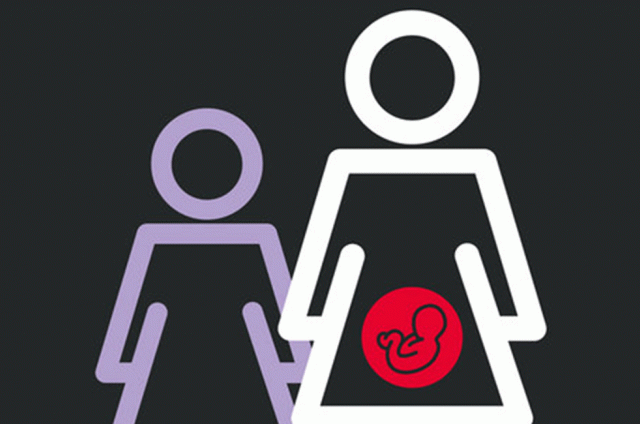Giving birth and epilepsy
Information about the risk of seizures and pain relief available for women with epilepsy during childbirth.
Will having epilepsy affect the birth?
Most women with epilepsy have normal deliveries and healthy babies. Your doctors may advise you to give birth in hospital so that you and your baby can have extra care if needed. If a seizure happens during labour, your baby’s oxygen supply may be reduced.
Drugs may be given to stop the seizure.
You can discuss your individual risk of having a seizure during labour with your neurologist or epilepsy specialist nurse (ESN).
It can be useful for the midwife and medical team who will be at the birth to know about your epilepsy, including what type of seizures you have, which anti-seizure medication (ASM) you take, and when you take them. Ideally, ASMs are taken as normal during labour.
If you want to have a home birth, you need to carefully consider the possibility of having a seizure during labour, which could lead to complications. If you would like to have a water birth, you may also need to consider the possible risks if you become confused or lose awareness during your seizures.
Generally, a caesarean section (C-section) is only necessary if it is in the best interests of you and your baby.
What pain relief can I have?
Women with epilepsy can use most types of pain relief during labour. These include:
- an epidural (an anaesthetic into the spine);
- breathing techniques; and
- gas and air (called Entonox).
Another way to relieve pain is to use a TENS (transcutaneous electrical nerve stimulation) machine, which uses electrical impulses to stop pain signals getting to the brain.
There is no evidence that TENS machines are not safe for use in epilepsy, but many manufacturers still include a warning in their instructions and advise women with epilepsy to speak to their doctor before using a TENS machine.
Pethidine, a strong painkiller, has been thought to trigger seizures in some women with epilepsy and, if possible, should be avoided.
It is helpful to tell the midwife and the medical team if your seizures have particular triggers. For example, if over-breathing, tiredness, or pain have triggered seizures in the past.
After your baby is born
Why is vitamin K prescribed?
Vitamin K plays an important part in making our blood thicken (clot). A very small number of newborn babies are born without enough vitamin K. This can cause nose bleeds, mouth bleeds, and in some cases internal bleeding. Some ASMs can reduce a mother’s vitamin K levels, and this can increase the risk of their baby having low vitamin K levels.
The Department of Health recommends that all newborn babies are given extra vitamin K at birth, or within the first month of being born.
Can my child inherit epilepsy?
Most parents with epilepsy do not have children with epilepsy, and the chances of inheriting epilepsy are generally low. The risk for any child to develop epilepsy by the age of 20 is around 1 in 100 (1%), and the risk may increase to around 2 to 5 in 100 (2 – 5%) for most children whose parents have epilepsy.
However, the chances of your child inheriting epilepsy may depend on various factors, including: whether your epilepsy has a genetic cause, what type of epilepsy you have, at what age it started, and whether your partner or another child of yours has epilepsy. Your neurologist may be able to give you more information about your epilepsy.
Epilepsy can be a symptom of an inherited medical condition, passed from parent to child. These include the rare conditions tuberous sclerosis and neurofibromatosis.
Seizure thresholds
Another genetic factor is our ‘seizure threshold’, which is the brain’s natural resistance to seizures and part of our genetic make-up. As we all have a seizure threshold, any of us could have a seizure under certain circumstances.
If a child inherits a low seizure threshold they are more likely to start having seizures. If they inherit a high seizure threshold then seizures are less likely to start unless an outside factor happens, for example a severe head injury.
epilepsysociety.org.uk/what-epilepsy
What’s next?
See parenting with epilepsy for ideas about keeping you and baby safe if you have seizures.
Further information
National Institute for Health and Care Excellence.
nice.org.uk/guidance/ng217
Guidance on the diagnosis and treatment of epilepsy.
Epilepsy Society is grateful to Dr F J Rugg-Gunn, Consultant Neurologist & Honorary Associate Professor Clinical Lead, Chalfont Centre for Epilepsy, who reviewed this information.
Information updated: September 2023
Breastfeeding and epilepsy
Information for women with epilepsy about breastfeeding including concerns about passing medication to the baby.
List of anti-seizure medication
List of anti-seizure medication (ASM), previously known as anti-epileptic drugs or AEDs, with details including dosage and possible side-effects.
Parenting with epilepsy
If your seizures (or your partner’s) are controlled, then epilepsy may not affect how you look after your child. However, parents who have seizures may find taking extra safety measures helpful. This depends on the type of seizures and the activity involved.
Want to know more?
Download our Women and girls leaflet:
Download the PDF (pdf 1,229 KB)
For printed copies, please call our Helpline on 01494 601 400. Please note - we require a purchase order for bulk orders.


